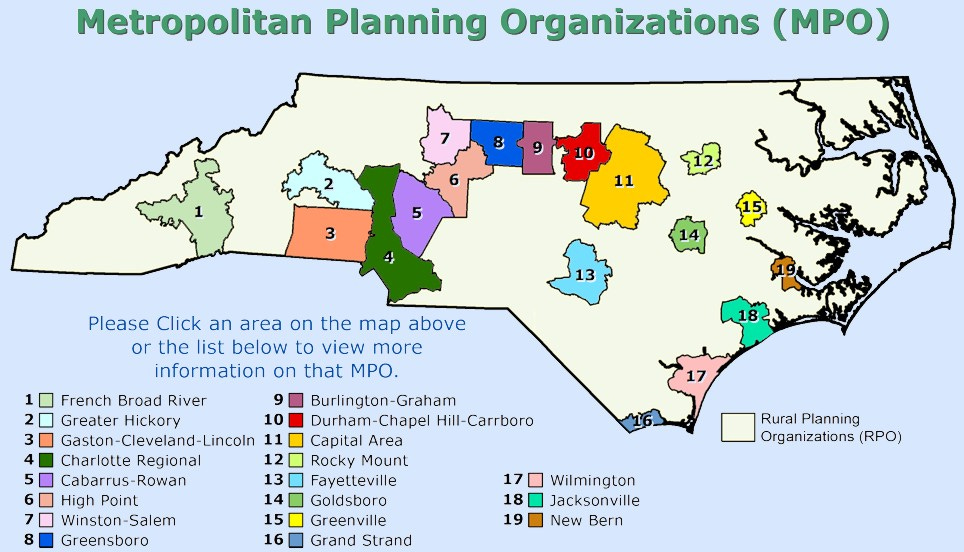I'm sorry, I don't speak MPO.
It's not an obscurantist acronym: Metropolitan Planning Organizations are responsible for the lion's share of the transportation planning in the United States. It's not working—is there another way?

Nineteen MPOs in North Carolina make decisions using the 3C’s model
Chances are you’ve never had a meaningful interaction with your regional transportation planning body, sometimes known as an MPO—Metropolitan Planning Organization. This organization, required by law for regions over 50,000 people, does two things: creates and maintains a long range plan (LRP) and the capital spending program that feeds into the statewide program—the Transportation Improvement Program (TIP) to the Statewide Transportation Improvement Program (STIP) superhighway.
There are over 400 MPOs in the United States, each one working closely with its local partners and different stakeholders to ostensibly achieve the best use for the time and expertise it has and for the money it controls. These are relatively new levels of government, the first one designated in 1960, and exist in every state in the US. Here’s a map (Alaska and Hawaii not to scale, obviously.)



